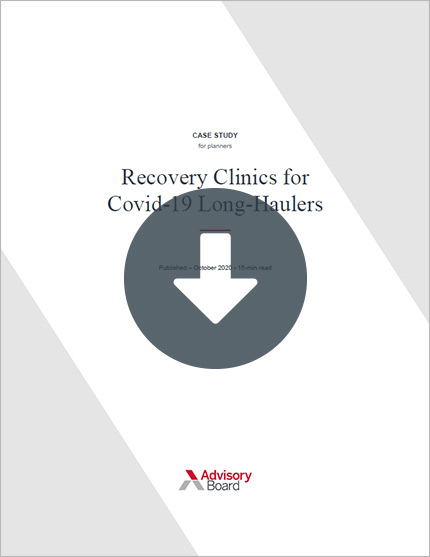Auto logout in seconds.
Continue LogoutCognitive impairment resulting from severe Covid-19 is equivalent to 20 years of aging and losing 10 IQ points, according to a recent study published in eClinicalMedicine.
Case study: Recovery clinics for Covid-19 long-haulers
Study details
For the study, researchers at the University of Cambridge and Imperial College London looked at 46 patients who received care for Covid-19 at Addenbrooke's Hospital, which is part of Cambridge University Hospitals NHS Foundation Trust, between March 10 and July 31, 2020. Of the patients, 16 were placed on mechanical ventilation while hospitalized.
The patients then underwent computerized cognitive tests an average of six months after their illnesses. The tests measured different aspects of the patients' mental faculties, including their memory, attention, and reasoning, and their results were measured against 66,008 members of the general public as a control.
Overall, participants displayed a "consistent pattern of cognitive underperformance" in terms of accuracy and processing time when completing the tests. The researchers found that the patients had less accurate scores with slower response times than the control population, and those deficits in their cognitive ability were still present six months later. The cognitive deficits were most prevalent among those requiring mechanical ventilation.
Based on the patients' comparison to the control population, the researchers estimated the cognitive loss from severe Covid-19 was similar to the cognitive loss sustained between ages 50 and 70 and was equivalent to losing 10 IQ points.
The researchers also found that scores and reaction times improved in the patients over time, but added that any recovery was gradual and was likely affected by a variety of factors, including the severity of the patient's illness.
The cause of the cognitive deficits was likely a combination of different factors, the researchers said, including poor oxygen or blood supply to the brain, large or small blood vessels being blocked and clotting, and microscopic bleeds. The body's inflammatory response and immune system may be additional factors, the researchers said.
Discussion
David Menon, from the University of Cambridge's division of anaesthesia and senior author on the study, noted that cognitive impairment "is common to a wide range of neurological disorders, including dementia, and even routine aging," but added that the patterns the researchers saw among the Covid-19 patients were "distinct from all of these."
Menon also noted that improvement was seen in the patients over time. "We followed some patients up as late as 10 months after their acute infection, so were able to see a very slow improvement," he said. "While this was not statistically significant, it is at least heading in the right direction, but it is very possible that some of these individuals will never fully recover."
"Around 40,000 people have been through intensive care with COVID-19 in England alone and many more will have been very sick, but not admitted to hospital," said Adam Hampshire, from Imperial College London's department of brain sciences and first author on the study. "This means there is a large number of people out there still experiencing problems with cognition many months later. We urgently need to look at what can be done to help these people." (University of Cambridge press release, 5/3; CIDRAP News, 5/3; Carbajal, Becker's Hospital Review, 5/4; Choi, The Hill, 5/4)
Download the case study

Several health systems have set up dedicated recovery clinics to help treat and coordinate care for long-haulers. This resource provides an overview of Covid-19 recovery clinic models pioneered by two early adopters—The University of Iowa Hospitals and Clinics and the University of Pennsylvania Medicine—and considerations for assessing whether it is a model you should pursue.
Don't miss out on the latest Advisory Board insights
Create your free account to access 1 resource, including the latest research and webinars.
Want access without creating an account?
You have 1 free members-only resource remaining this month.
1 free members-only resources remaining
1 free members-only resources remaining
You've reached your limit of free insights
Become a member to access all of Advisory Board's resources, events, and experts
Never miss out on the latest innovative health care content tailored to you.
Benefits include:
You've reached your limit of free insights
Become a member to access all of Advisory Board's resources, events, and experts
Never miss out on the latest innovative health care content tailored to you.
Benefits include:
This content is available through your Curated Research partnership with Advisory Board. Click on ‘view this resource’ to read the full piece
Email ask@advisory.com to learn more
Click on ‘Become a Member’ to learn about the benefits of a Full-Access partnership with Advisory Board
Never miss out on the latest innovative health care content tailored to you.
Benefits Include:
This is for members only. Learn more.
Click on ‘Become a Member’ to learn about the benefits of a Full-Access partnership with Advisory Board
Never miss out on the latest innovative health care content tailored to you.
